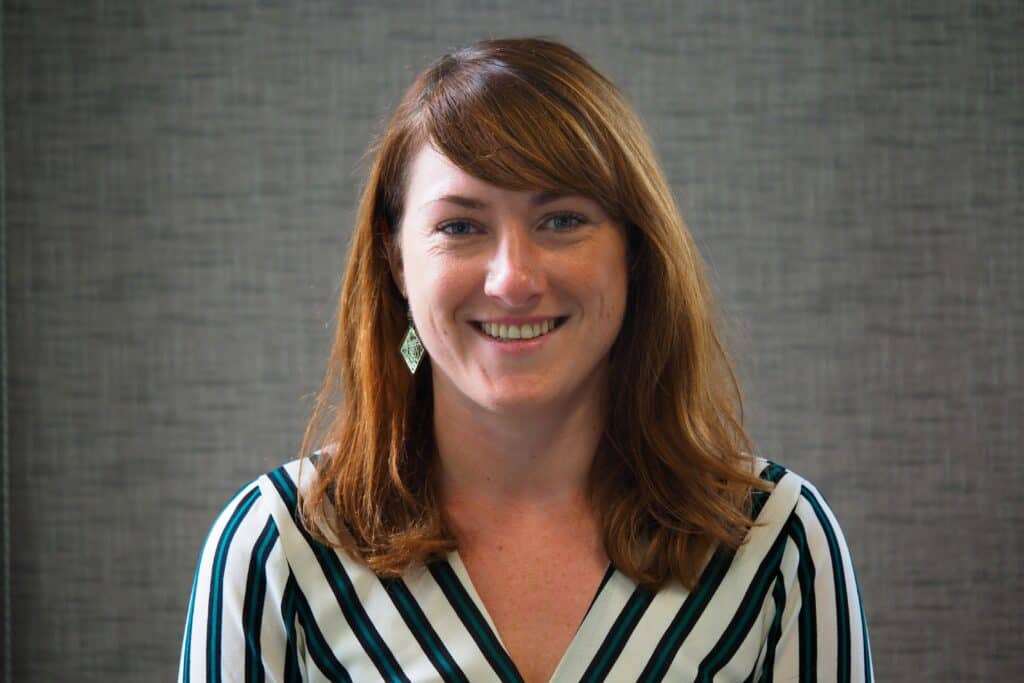
Early in 2023, the World Health Organization (WHO) launched a Global Breast Cancer Initiative Framework with the goal of preventing 2.5 million people from dying of breast cancer by 2040. As part of this framework, the WHO proposed that every country in the world should aim for 60% or more of breast cancers to be diagnosed at stage I or II. Breast cancers diagnosed at an early stage are easier to treat and have better outcomes. But to meet this goal and achieve global health equity, it is crucial to understand which countries are on track and which need more resources and support.
In a paper published in JAMA Oncology, Susan G. Komen grantee Eileen Morgan, Ph.D., and her team at the International Agency for Research on Cancer (IARC) studied how the stage at diagnosis of breast cancer differed in 81 countries across the globe. In this international collaborative effort, researchers reviewed studies that used population-based cancer registry data on over 2 million women, which allowed the research team to compare stage at diagnosis across various countries, age groups and socioeconomic backgrounds.
“It’s really important to understand the global distribution of stage at diagnosis of breast cancer so that we’re informed of regions or countries where these global targets are being met, which will help to reduce mortality from breast cancer. It will also help us to identify where targets are not being achieved and where more support is needed,” says Dr. Morgan.
Unravelling Disparities
This study found that a higher proportion of women in some countries had metastatic breast cancer (MBC) compared to other countries when they were diagnosed. Up to 30% of women in Sub-Saharan African countries had MBC when they were initially diagnosed, which is in stark contrast to regions such as North America, Europe and Oceania where the proportion of MBC at the time of the initial diagnosis was less than 10% in most countries.
Older women were also found to be disproportionately diagnosed with MBC more frequently than younger women, which Dr. Morgan suggests may be due to lack of awareness of symptoms from both patients and their physicians.
This difference in diagnosis is surprising to Dr. Morgan, who says, “It’s the magnitude of this difference [in older women] that was quite surprising for me in some of the countries involved in this study. We saw that with proportions of distant breast cancer, there were some countries that had at least two times higher MBC proportions being diagnosed [in older women] compared to younger women.”
Despite these sobering findings, this study sheds light on encouraging news. The overall proportion of patients diagnosed with MBC decreased over the last 20 years, a tribute to improvements in access to early detection and screening programs. Studies like this offer hope that by directing resources to the countries that need them the most, we can continue to see improvements in early-stage diagnosis worldwide.
“That’s really encouraging because then we do see the impact of advances in breast cancer diagnosis and early detection in more recent years,” says Dr. Morgan.
The Power of Shared Data
Dr. Morgan’s study also highlights the value of data from population-based cancer registries, as without these registries of high-quality data, the team would not have been able to unravel these important findings.
“Without this data, we would not have been able to compare how the stage at diagnosis varies across countries, which is really important so that we can identify settings and countries that need more support,” says Dr. Morgan.
Global collaboration and research is critical to improving patient outcomes, as Dr. Morgan notes, “We can see from the study that stage data at population level is not always available, and ongoing international initiatives are really important in efforts to improve cancer stage data, so that in the end, they can support effective cancer control plans and outcomes for women that are diagnosed with breast cancer.”
In the future, Dr. Morgan plans to take her studies to the next level and uncover how stage at diagnosis contributes to survival, particularly in low- and middle-income countries whose populations have been understudied.
According to Dr. Morgan, “These studies will then let us see how the impact of early detection and treatment on survival after a diagnosis of breast cancer can play a role.”
Susan G. Komen is leading the charge in the United States by collecting data that researchers like Dr. Morgan can use to answer the most pressing questions in breast cancer with its new initiative, ShareForCures. ShareForCures invites people diagnosed with breast cancer to safely share their health data on Komen’s secure online platform to provide researchers with a diverse pool of data to use in their studies.
Funding
This research was supported by the Union for International Cancer Control (UICC) and by a grant from Susan G. Komen®.



